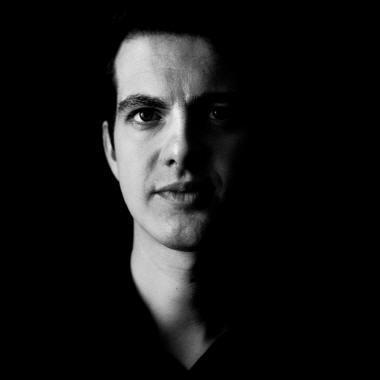Nesting gay men and posh female totty by the bucketload in the audience last night. Fill any programme with Baroque opera and that’s what you get. Why? Because the Baroque is aspirational pop. It's grounded in the same musical tricks that drive on the chart-topping hits of Kylie or Madonna: pumping ostinati, unshake-offable tunes and harmonic Häagen-Dazs - obvious harmonic loops that you can't get enough of. Though last night the hook was even simpler: a beddable boy.
Looks weren’t the only or principal draw. French countertenor Philippe Jaroussky is joli-laid: lanky, boyish and chinny. But what a voice. Via a visual cacophony of bony, jerky body movements, the movements of a chick about to hatch, Jaroussky propels a sweet, euphonious, versatile sound that, whether in first gear, sotto voce or spitting out notes up by the ozone layer at the speed of sound, never fails to be anything but exquisite.
Having stuffed the programme with arias from the obscure operas of Johann Christian Bach (the 18th child of J S Bach), Jaroussky’s musical taste was on trial as much as his vocal talents. Could he resurrect the fortunes of this long-forgotten Bach, who once ruled the roost in musical London 300 years ago? The answer was a resounding no. We weren’t mean. We clapped politely, gave him his due, but the love wasn’t there.
JC is interesting only musicologically - not only for his prominence in shaping musical life in London in the mid to late 18th century but also for his contribution to the burgeoning Classical age. In terms of phrasing, orchestral layering and harmonic matters he obviously provided the young Mozart with some models to work with.
But his music singularly fails to excite. In the aria "Cara, la dolce fiamma" from his 1765 opera Adriano in Siria, never has a composer traversed so much ground to so little effect. It was as eventful as a featureless Arctic hike. Both "Ch’io parta?... Ma pensa" from Temistocle (1772) and "No, che non ha la sorte… Vo solcando un mar crudele" from Artaserse (1760) were interesting only for their musical proximity to a Mozartian sound world.
It was left to Handel to rescue the concert and Jaroussky. The countertenor looked more comfortable singing the great hits of Alcina, Ariodante, Tolomeo and Rinaldo than those of J C Bach. When you've got a technique like Jaroussky's you have to work far less to make the Handelian show-stoppers work - he seems most at ease at TGV speeds, rattling off the firecracker leaps and runs.
Having said this, he should calm down when calm is required; he has a tendency to overwork the pensive arias and to over-emote the emotional ones. And I hope the JC fad fades. Concerto Cologne, conducted from the harpsichord by Nicolau de Figueiredo (who also gave a performance of a completely mad JC harpsichord concerto as an interlude between arias), provided superb backing: windy, shapely and richly colourful.
The Great Performers series at the Barbican continues next week with a performance of the Messiah with Harry Bicket and The English Concert













Add comment